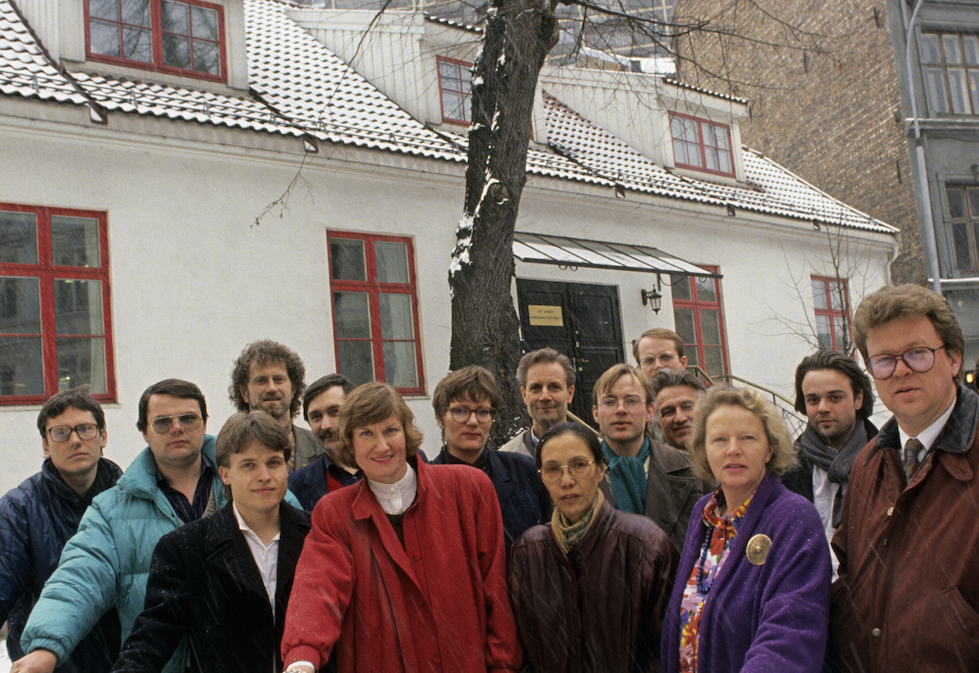A supportive business leader offered the newly formed Norwegian Human Rights House a rent-free facility in Oslo. Six human rights organisations moved into the house at Urtegata 50 which soon became a hub for human rights activities in Norway.
The opening of the Human Rights House coincided with major changes in Europe including the Berlin Wall falling and the Soviet Bloc dissolving. People hoped democracy and human rights would flourish in former authoritarian states. Many human rights organisations around the world, including those now building a community in the first Human Rights House, focused their efforts on helping the emerging democracies.
A Human Rights House is home to independent non-governmental organisations working to advance human rights in their own country, and abroad. The organisations focus on their own specific human rights issues which range from Women’s Rights, Freedom of Expression, to Mothers’ and Children’s Rights, Fighting Hate Speech, and to LBGT issues – to name but a few.
They ban together in a shared facility to reduce costs, lower overhead, and cooperate on common issues. Every House is founded on the principles of equality and is managed democratically, allowing room for debate, diversity of opinion, and differences in approaches. Working under the same roof creates solidarity which fosters motivation. Small organisations are able to concentrate on the most important aspects of their work and learn from others in the same field.
Impressed with the Human Rights House in Oslo, business leaders offered to set up a foundation to support it. The mandate soon expanded, and in 1992, the newly formed Human Rights House Foundation decided to not only support the Norwegian Human Rights House, but also assist with the establishment of new Human Rights Houses, in Norway and the former Soviet Bloc. The creators and supporters of the Human Rights House concept were confident the model could work for other countries.
And they were right. [At the time of publication] 16 Human Rights Houses operate in 13 countries and are home to more than 100 independent organisations. They make up the Human Rights House Network, now marking its 20th year empowering, supporting and protecting the human rights defenders who are on the frontline of the struggle for universal human rights.
The birth of an idea to create a Human Rights House in Oslo led to the establishment of Houses from Moscow to London, Warsaw to Kiev, Bergen to Belgrade, and points between. The creators of the concept should be pleased their idea gave rise to a vibrant community of human rights defenders across Western Europe, the Balkans and the Caucasus. And they should be encouraged that the concept continues to attract the attention of human rights defenders around the world.





